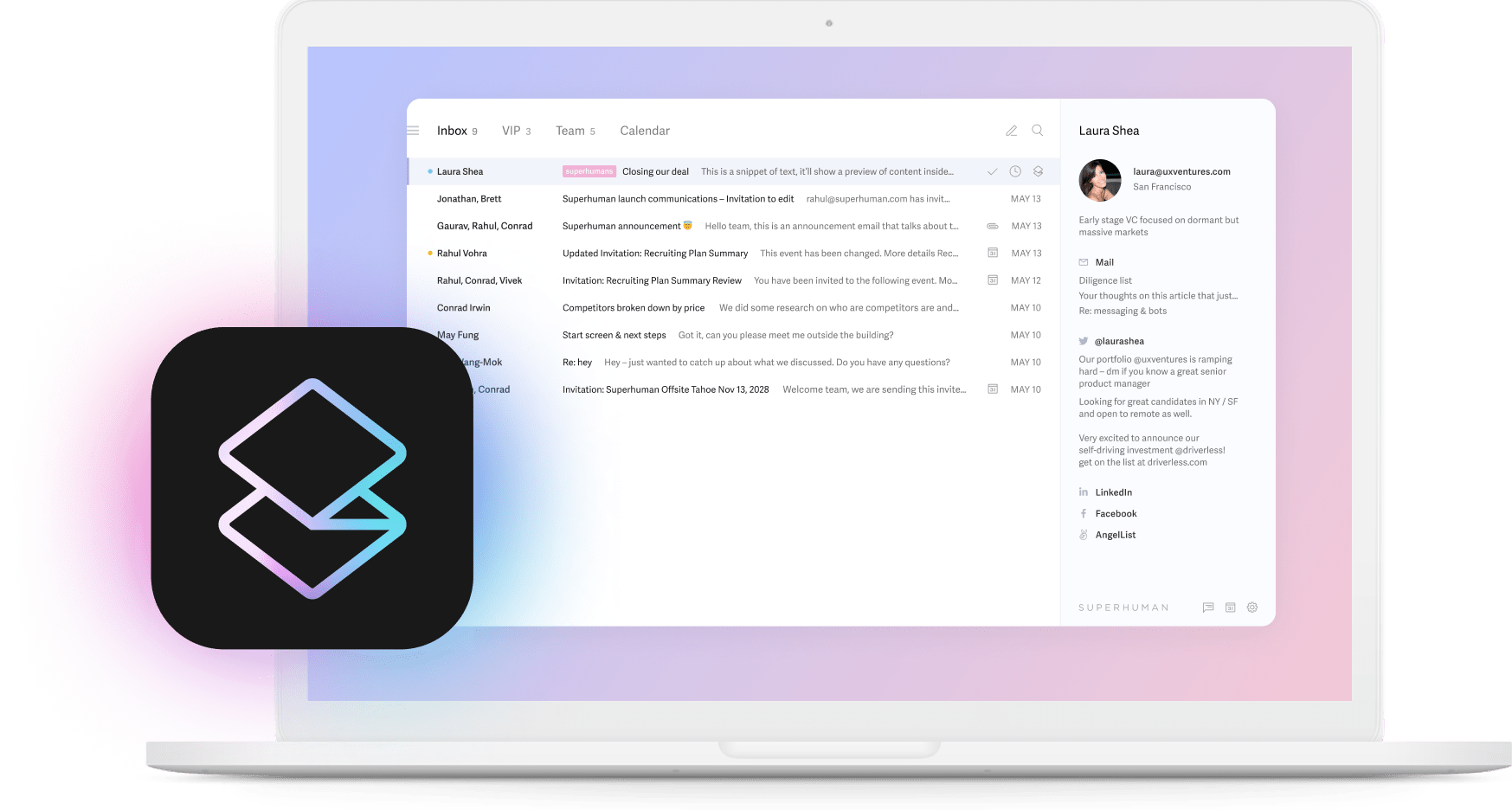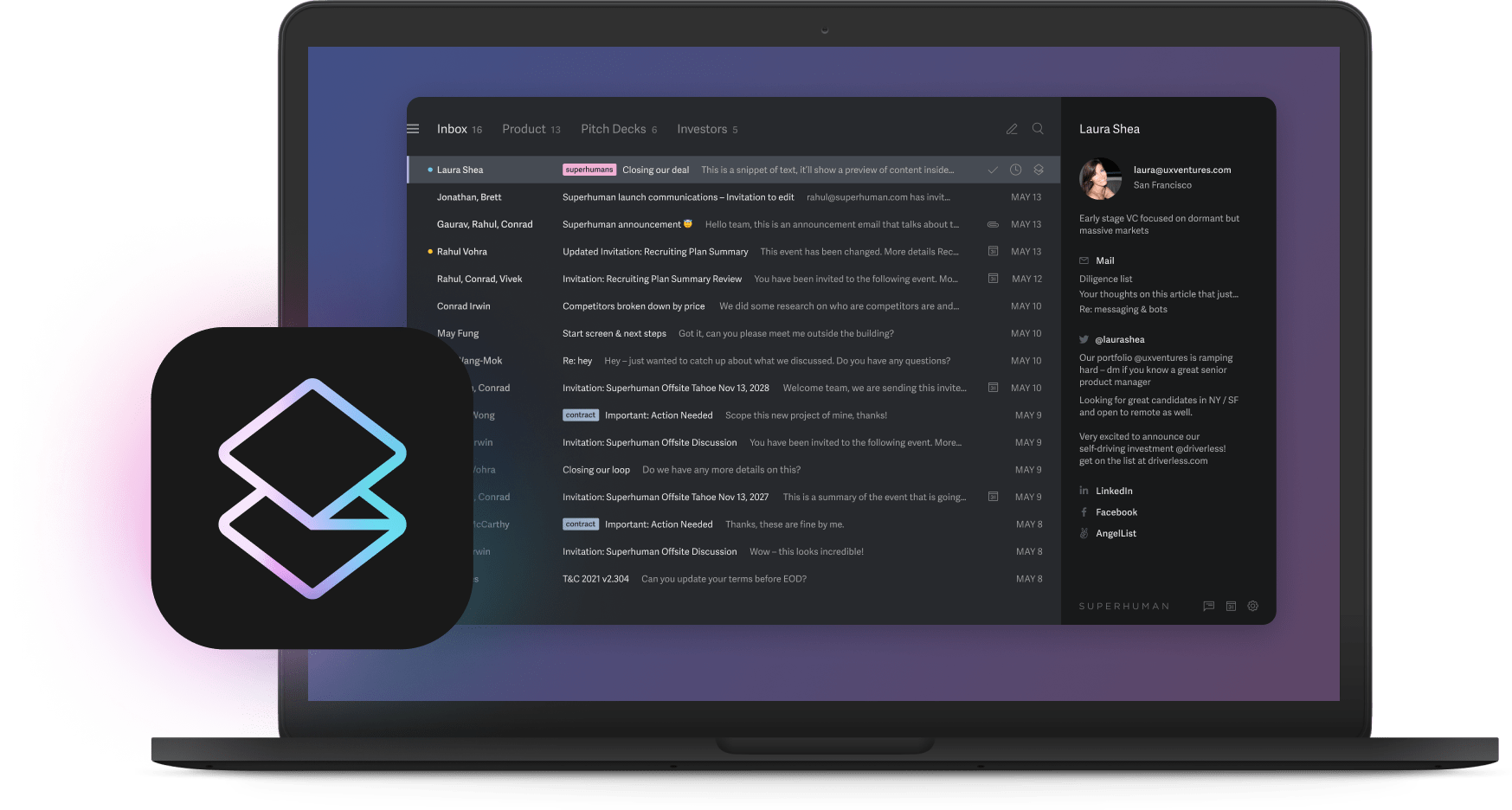
Ever wonder where your day goes? If you're in sales, the answer isn't always pretty.
Sales reps spend just 28% of their week actually selling. Everything else — data entry, meeting prep, follow-ups — eats nearly three-quarters of their time. That's why AI sales agents have taken off.
What are AI sales agents?
They're digital assistants that handle the boring, repetitive stuff that normally bogs down sales teams. But they're not just basic automation tools. The good ones can:
- Talk to prospects across different channels with personalized messages
- Sort out which leads matter most
- Create sales content tailored to specific prospects
- Schedule meetings without you lifting a finger
- Update your CRM automatically
The best AI agents learn from every interaction, getting better over time and adapting as your sales process changes.
One thing to remember: AI sales agents work best alongside humans, not instead of them. The magic happens when you combine AI efficiency with human connection.
How AI transforms sales performance
Getting your time back
Picture this: You get to work and find your inbox already organized, follow-up emails drafted, meeting notes done, and your day already prioritized.
That's not fantasy. Sales teams using AI save up to two hours every day on admin tasks. That's 25% of your workday suddenly free for actual selling.
Do the math for a team of ten salespeople:
- Without AI: 70 hours per week lost to admin tasks
- With AI: 50+ additional selling hours available weekly
- Over a year: 2,600+ hours redirected to making money
The financial upside is just as compelling. 44% of companies report cost savings after adding AI, with top performers cutting costs by at least 10%.
Making every message feel personal
"This email feels like it was written just for me."
That's what you want prospects thinking, but how do you do that for hundreds or thousands of contacts? You can't — but AI can.
AI sales agents analyze customer data to create genuinely personal messages. For online stores, this personalization boosts operational efficiency by 76% and significantly increases revenue. The money makes sense too: 69% of retailers see higher profits from personalized recommendations.
Good AI tools don't just fill in {FIRST_NAME} tags. They analyze how prospects behave, what industry terms they use, and even their communication style. They learn which messages work with different prospects and get better over time.
This personalization runs through the entire sales process — from the first email to meeting prep and everything in between.
Never dropping the ball on follow-up
We all know what happens to leads that fall through the cracks. They buy from someone else.
AI sales agents make sure that never happens by:
- Giving every lead the right amount of attention based on how likely they are to buy
- Keeping in touch through automated sequences that don't feel robotic
- Noticing when interest goes up or down and adjusting priorities
- Recording everything in one place so nothing gets lost
This is huge for online stores, where cart abandonment hits 70.19%. AI can automatically reach out to these almost-customers at just the right moment, bringing back sales you would have lost.
Getting people to actually use your CRM
Sales tech only works when people use it. Seems obvious, right? That's why it matters that 69% of salespeople with AI-powered CRMs are more likely to actually use their system. When the tech genuinely helps instead of creating more work, people embrace it.
This creates a snowball effect:
- More CRM usage → Better data
- Better data → Smarter AI help
- Smarter AI help → Higher productivity
- Higher productivity → Even more reason to use the system
For sales leaders, this finally solves the headache of getting teams to use the tech you've paid for. Instead of forcing people to adapt to rigid systems, the AI adapts to how your team actually works.
AI sales agents in real life
Finding needles in haystacks
Looking for the perfect prospects is exhausting. You could spend hours scouring LinkedIn, reading company news, and still miss the best opportunities.
AI sales agents transform this process by watching social media, news, and professional networks for buying signals. When they spot something interesting — like a job change, funding announcement, or relevant post — they can:
- Create rich prospect profiles with the info that actually matters
- Rank leads based on who's most likely to buy
- Craft outreach that speaks to their specific situation
- Start conversations across multiple channels
The system gets smarter over time, learning from what works and what doesn't.
Making cold outreach actually work
Traditional outreach follows a script with minimal personalization. "Hey {FIRST_NAME}, hope you're well!" We all know how that feels to receive.
AI completely changes this approach through:
- Messages that mention what's actually happening in the prospect's world — their company news, industry challenges, or recent achievements
- Sending emails when people are most likely to read them
- Coordinating outreach across email, social, phone, and text
- Adjusting follow-up based on how people respond
For prospects, the difference is huge. Instead of obviously mass-produced messages, they get communications that feel like you wrote them specifically for their situation. That's why response rates go up dramatically.
Taking the pain out of scheduling
The scheduling dance wastes ridiculous amounts of time:
- Average time to schedule one B2B meeting: 17 minutes
- Typical emails exchanged to find a time: 7
- Percentage of meetings that need rescheduling: 25%
- Time wasted annually on scheduling for one sales rep: 76+ hours
AI eliminates this waste by:
- Automatically finding times that work for everyone
- Handling time zones, work hours, and travel time
- Giving prospects self-service booking options
- Sending reminders that cut no-shows by up to 29%
- Making rescheduling painless when conflicts come up
The best part? Both your team and your prospects appreciate the streamlined process. It creates goodwill before the conversation even starts.
Creating content that actually closes deals
Which proposal would you rather receive: a generic template or something that specifically addresses your unique challenges, speaks to your industry, and shows clear understanding of what you care about?
Obviously the second one. But creating custom content for every opportunity takes more time than most sales teams have. AI bridges this gap by:
- Finding key pain points from prospect data
- Pulling relevant case studies and capabilities from your knowledge base
- Creating proposals that speak directly to the prospect's specific challenges
- Building presentations with industry-specific messaging
- Writing follow-ups that reference actual conversation points
These systems keep improving by analyzing which content elements get positive responses, making future materials even more effective.
Killing the admin burden
Sales reps spend 70% of their time on non-selling tasks. That's crazy. AI sales agents fix this by handling:
Data entry and CRM updates
- Recording all prospect interactions automatically
- Syncing information across systems in real time
- Logging activities without you having to type anything
Document creation
- Generating quotes and proposals with the right pricing
- Creating contracts with appropriate terms
- Preparing invoices and order forms
Performance tracking
- Analyzing what's working and what's not at each sales stage
- Finding patterns in won and lost deals
- Suggesting practical improvements to your process
When your team spends less time on paperwork, they spend more time with customers. That translates directly to more revenue.
Finding the right tools
With hundreds of AI sales tools out there, how do you choose? Here's a breakdown of the best options by what they do best.
For finding prospects and starting conversations
- What's special: Huge database (270M+ contacts) that keeps updating itself
- Perfect for: Companies reaching out to lots of prospects who need personalized messages
- How it's different: Adapts outreach based on how people respond
- Works well with: Most major CRM platforms
- What's special: Deep HubSpot integration with smart email capabilities
- Perfect for: HubSpot users wanting to improve outreach results
- How it's different: Uses your existing CRM data to make relevant messages
- Works well with: HubSpot marketing automation
- What's special: Finding new leads and verifying their contact info in real time
- Perfect for: Teams obsessed with data quality and accuracy
- How it's different: Combines AI with human verification for better results
- Works well with: Most sales engagement platforms
For eliminating manual busywork
- What's special: Automating browser tasks like data enrichment and LinkedIn outreach
- Perfect for: Teams that live on LinkedIn for prospecting
- How it's different: Creates workflows that connect multiple applications
- Works well with: Almost any web-based platform
- What's special: Automated admin work with AI coaching on deals
- Perfect for: Organizations wanting better forecasting and deal management
- How it's different: Spots deal risks early and suggests how to fix them
- Works well with: CRMs and communication systems
- What's special: Analyzing personality traits to match communication style
- Perfect for: Teams selling complex solutions that require relationship building
- How it's different: Studies public data to determine the best way to communicate
- Works well with: Gmail, Outlook, and major CRMs
For phone and video communication
- What's special: Natural-sounding AI for phone conversations
- Perfect for: Companies with high call volumes needing initial qualification
- How it's different: Handles early conversations before routing to the right person
- Works well with: Call tracking and analytics systems
- What's special: AI agents for phone calls and video meetings
- Perfect for: Teams wanting to qualify prospects efficiently before human involvement
- How it's different: Conducts discovery conversations using natural language
- Works well with: Video conferencing and call systems
- What's special: Voice automation with CRM integration
- Perfect for: Organizations wanting unified phone systems
- How it's different: Creates complete call records automatically
- Works well with: Most major CRM platforms
For website engagement
- What's special: Website chat in 50+ languages
- Perfect for: Global companies needing 24/7 multilingual support
- How it's different: Combines automated responses with smart escalation decisions
- Works well with: CRM and marketing automation platforms
- What's special: Conversational marketing that integrates with sales
- Perfect for: B2B companies wanting to turn website visits into meetings
- How it's different: Conversation flows specifically designed for sales qualification
- Works well with: Calendar systems and sales platforms
- What's special: Customer support automation that hands off to sales when appropriate
- Perfect for: Companies where support and sales often overlap
- How it's different: Spots sales opportunities in support conversations
- Works well with: Ticketing systems and CRMs
How to actually implement AI sales agents
Getting AI sales agents to work requires some thought. Here's what successful companies do:
Start small, then grow
Don't try to automate everything at once. Begin with something simple that will show quick results:
Easy wins to start with:
- Automating meeting scheduling
- Setting up basic follow-up sequences
- Getting help with CRM data entry
- Creating simple lead qualification rules
Once your team sees the benefits, move on to more advanced stuff:
Next level applications:
- Coordinating outreach across multiple channels
- Setting up sophisticated prospect qualification
- Creating personalized content
- Getting strategic insights on accounts
This step-by-step approach builds confidence and momentum while avoiding disruption.
Fix your data first
AI can only be as good as the data it works with. Before you start:
- Check your CRM data for accuracy and completeness
- Set clear rules for data management
- Create processes to keep data clean going forward
- Figure out how different systems need to connect
Companies with good data see much better results from AI sales agents than those with messy or inconsistent information.
Set specific goals
Don't just aim for "better sales performance." Set concrete targets:
- Cut admin time by X hours per rep weekly
- Boost response rates to outbound emails by Y%
- Improve lead-to-opportunity conversion by Z%
- Speed up your average deal cycle by N days
These specific metrics help you evaluate whether the AI is actually working and guide your improvements.
Keep the human touch where it matters
The best AI implementations find the right balance between automation and personal connection. Think about:
- Which interactions need human creativity and judgment
- Where automation clearly helps without hurting the experience
- How to create smooth handoffs between AI and humans
- When to use AI to assist rather than replace people entirely
Companies that try to automate everything usually fail. The sweet spot is using AI for routine tasks while letting your team focus on building relationships.
What's coming next for AI sales agents?
AI keeps evolving quickly. Here are the trends reshaping what's possible:
From reactive to predictive
Early AI tools mostly responded to specific triggers. Newer systems are more proactive, spotting opportunities before humans even notice them:
- Finding early buying signals across digital channels
- Suggesting the best outreach approach based on prospect traits
- Predicting which deals might be at risk and how to save them
- Discovering untapped markets and potential new customers
These predictive capabilities turn AI from simple task automation into strategic advisors that give you a real edge.
Getting better at reading emotions
Early AI couldn't pick up on emotional cues. Advances in sentiment analysis are changing that:
- Recognizing how prospects feel from their communication style
- Adapting messages based on detected preferences
- Knowing when to bring in a human for emotionally complex situations
- Learning from successful emotional interactions
This emotional intelligence creates interactions that feel more natural, improving both efficiency and effectiveness.
Connecting everything together
Rather than working as standalone tools, AI sales agents increasingly serve as hubs connecting different technologies:
- Moving data seamlessly between marketing platforms, CRMs, and communication tools
- Creating unified interfaces so you don't have to switch between apps
- Giving visibility across the entire customer journey
- Automating workflows across previously separated systems
This integration eliminates the fragmentation that has historically killed sales productivity while giving you complete visibility into your sales process.
Getting started
If you're thinking about trying AI sales agents, here's a practical plan:
- Look at your current process to find the biggest time-wasters
- Measure your current performance for response times, admin hours, and conversion rates
- Check out available tools based on your specific needs
- Start with a small test on a specific team or use case
- Get feedback constantly from both sales reps and customers
- Compare results to your baseline to see the actual impact
- Refine and expand based on what you learn
The companies getting the best results treat implementation as an ongoing journey rather than a one-time project. They continuously improve their approach based on results, adapting as both technology and markets evolve.
As AI gets more advanced, the line between human and artificial intelligence in sales will blur. But the winners won't necessarily be those with the fanciest technology. They'll be the ones who find the right balance between automation and authentic human connection — creating experiences that combine the best of both worlds to deliver exceptional results.






